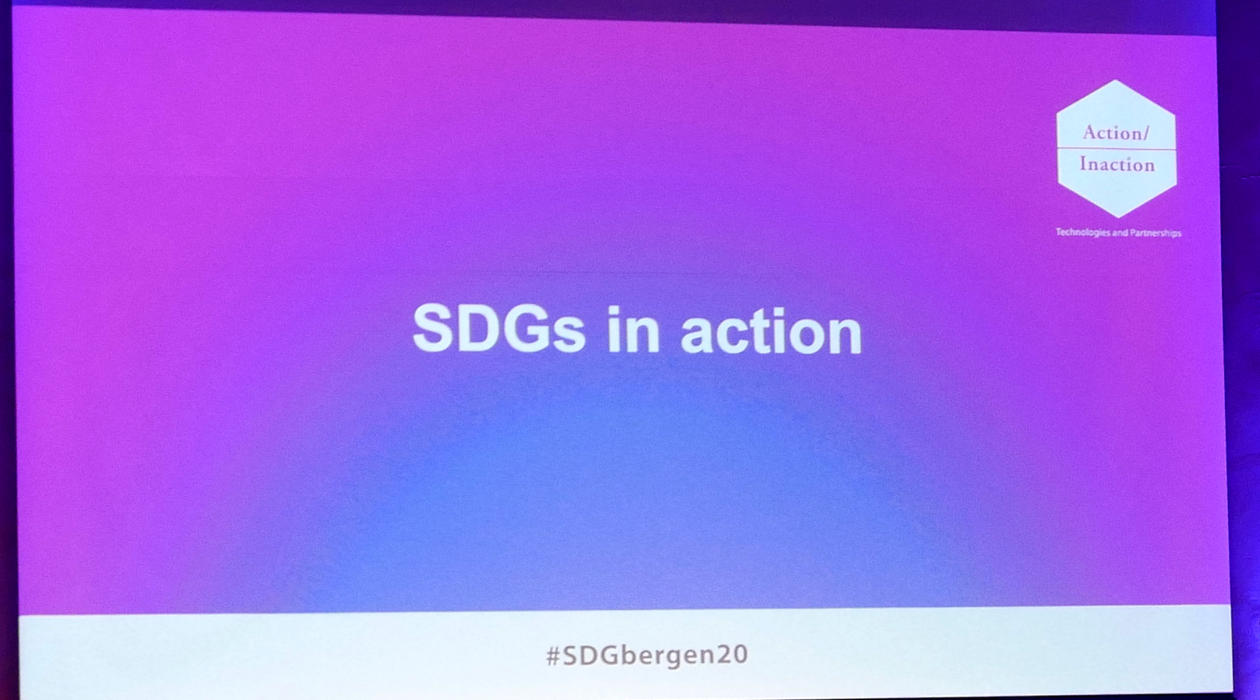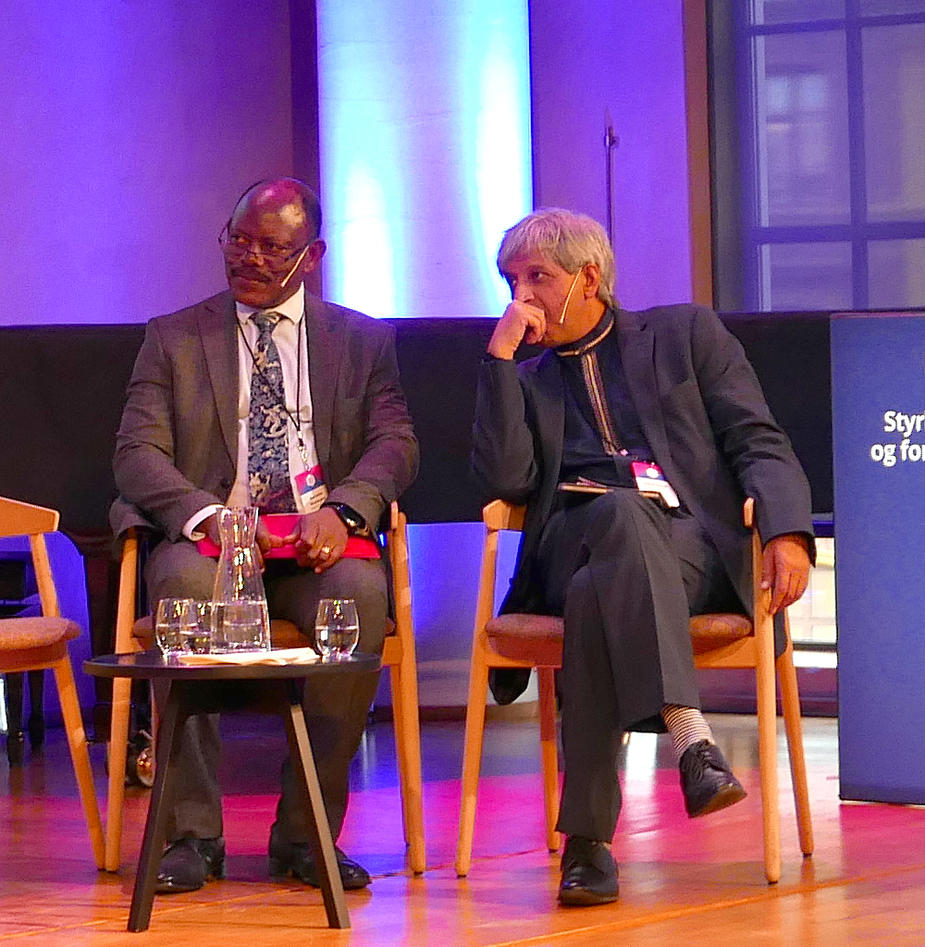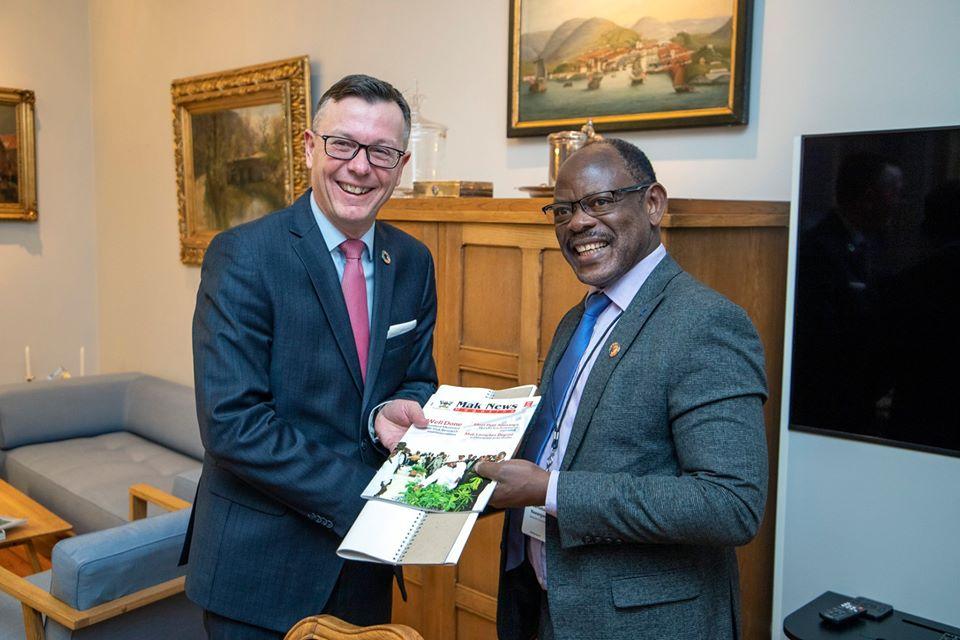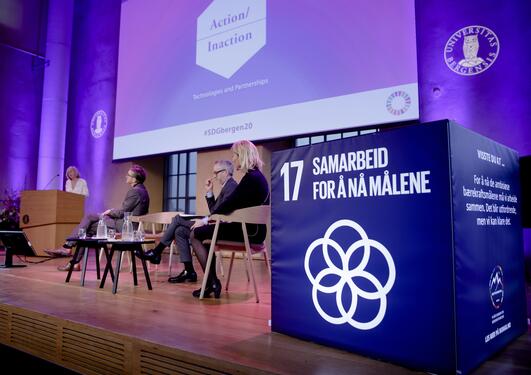Technology and Knowledge for Sustainability and Equality

Hovedinnhold
Hilligje van’t Land, the Secretary General of the International Association of Universities (IAU) hosted the Day One Panel: Technology and Knowledge for Sustainability and Equality at the 2020 SDG Conference Bergen.
As she opened the Panel session, she spoke of IAU’s mission to leave no University behind – but also that universities need to be strongly involved in promoting the global SDG agenda. She highlighted the idea of global clusters where universities can play a leading role in addressing each of the SDGs. The University of Bergen (UiB) is leading the focus on SDG14: Ocean Sustainability Bergen.
While van’t Land acknowledged the importance and transforming powers of new technologies, she cautioned that technology can also accentuate differences between social groups and countries. She concluded her opening remarks by saying that technology needs context.
Africa is not a homogeneous entity
Vice-Chancellor of the University of the Witwatersrand, South Africa, Dr. Adam Habib, held the keynote lecture in the panel debate session. He began by underlining that Africa is a complex space with 54 countries and over 1 billion people.
Habib said that we live in interesting, but dangerous times, where inequalities are threatening our future – we know what needs to be done, but we are not doing it!
Build bridges of human solidarity!
Habib exhorted the many delegates filling the UiB Aula to combat social and political polarisation by building bridges of human solidarity and bringing social justice to the heart of human conversations. While technological innovation is important, and sharing technology critical – context must also be taken into consideration. He cited an example from the work of a fellow researcher, Professor Tania Douglas, who has written about equipment graveyards in Africa: wastelands of medical devices that are not suited to local conditions, that cannot be repaired or maintained, or that require trained personnel to operate.
He spoke about engaging in frugal innovation that is contextually grounded – applying current knowledge and technology in innovative ways.
Fighting the brain drain
According to Habib, public, aid-supported policies since the 1980s have prioritised schooling, but not tertiary education. Students seeking higher education have mostly travelled abroad. Unfortunately, across the continent, about 80% have not returned. The result is that institutions of higher education in Africa have been weakened.
Equitable global partnerships
Habib concluded with a few key points:
- Practice human solidarity
- Be both local AND global
- Engage in new global partnerships, rooted in institutions and involving joint initiatives
- Understand the context of the developing world
The African millennium
Dr. Barnabas Nawangwe, Vice-Chancellor, University of Makerere, Uganda says that the 21st Century is Africa’s millennium. His question is how can African universities contribute? He spoke of a value chain from education to innovation to training to results and implementation. He spoke about how global partnerships, in the case of Makerere,Norway and Sweden, have transformed the devastation of years of civil-war into a university again in the top 10 in Africa. Around 600 PhDs have been educated largely in Norway and Sweden – and most have returned to leadership positions at universities, in government ministries and as policy makers. Supporting the whole education value-chain strengthens national economies, he says.
As Makerere now begins to support capacity building in other Ugandan universities and in neighbouring countries, Nawangwe underlines that in this new millennium, Africa will continue to develop and will be able to compete more equally on the global stage. He concluded by saying friendships are critical.
Including the SDGs on all agenda: global, national and local
Dr. Svein Stølen, the Rector of the University of Oslo, spoke about the name of the 2020 SDG Bergen Conference – and the need to focus on Action. Stølen says that universities are a kind of society built of many strong-willed people – the challenge is leading them. He concluded his short contribution by saying:
- Fight for balance between technology-driven and social-science driven initiatives. Think interdisciplinarily.
- We need funding for better trained scientists – this need should be reflected in funding priorities.
- Build, exploit, develop, expand, maintain partnerships.
- Increase emphasis on exchanges to develop multi-culturally aware, empowered students.
Use NGOs for advocacy
Ms. Carolyn Medel-Anonuevo, the Senior Programme Specialist/Head of Education Unit at the UNESCO Regional Office for Southern Africa, also underlined the need to take context into account when discussing technology in an African setting. She mentioned the need for African governments to commit to the 1% GDP financing of national research.
Medel-Anonuevo strongly advocated using NGOs as facilitators for building partnerships based on their extensive networks in African settings.
Ms. Elisabeth Gulbrandsen, Special adviser at the Research Council of Norway (RCN), spoke about the power of knowledge. She also spoke of transformative innovation policy (TIP) that is “weaving fabrics of change”. She said that we need to leave our traditional paradigms behind as our current systems are showing themselves to be unsustainable.
Ms. Andrea K. Felde, a PhD candidate at UiB, was the next speaker in the panel debate, and underlined the importance of youth in the SDG debate. Greta Thunberg’s school strikes are only one example of how youth can be involved to bring about change. Whose ethics, she asks, should be applied when technology is regulated?
Adam Habib concluded the day’s panel discussion by leaving participants with a question for reflection: how universities as centres for freedom of expression can impact power relationships in society.




